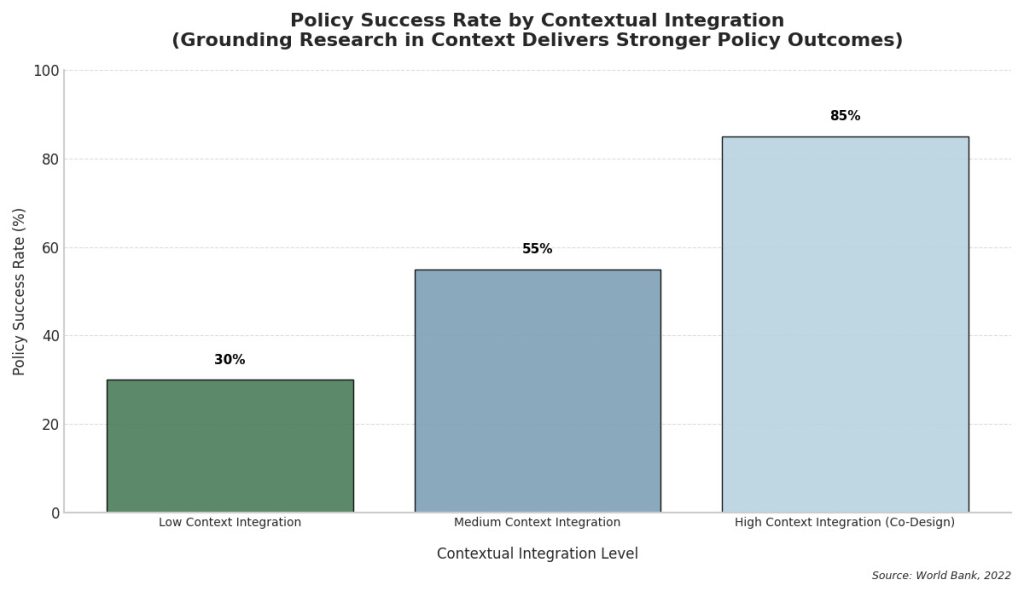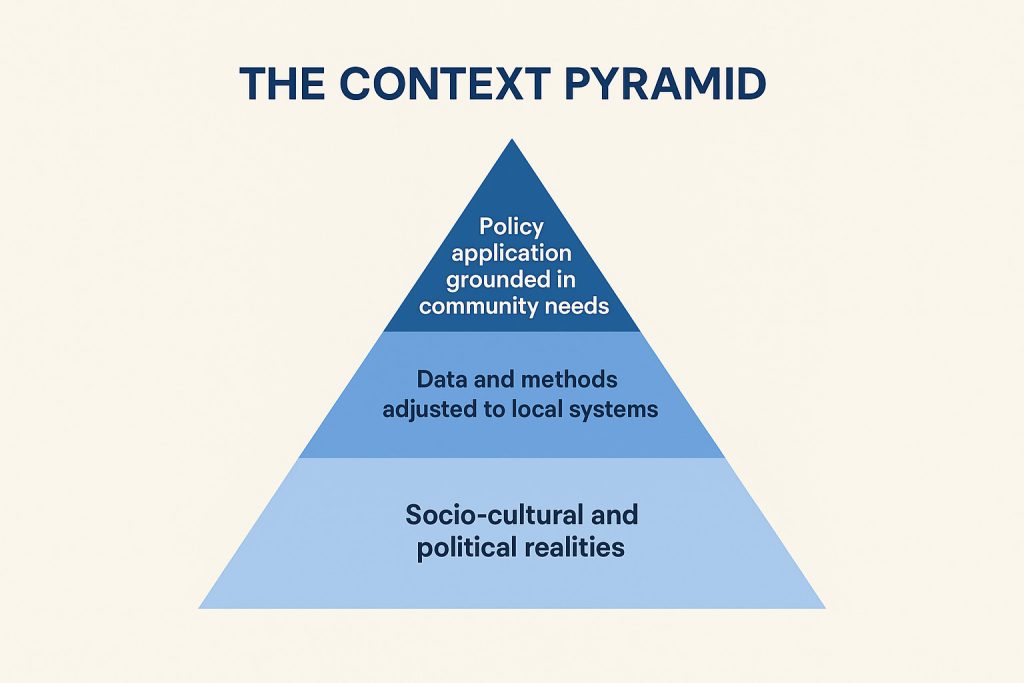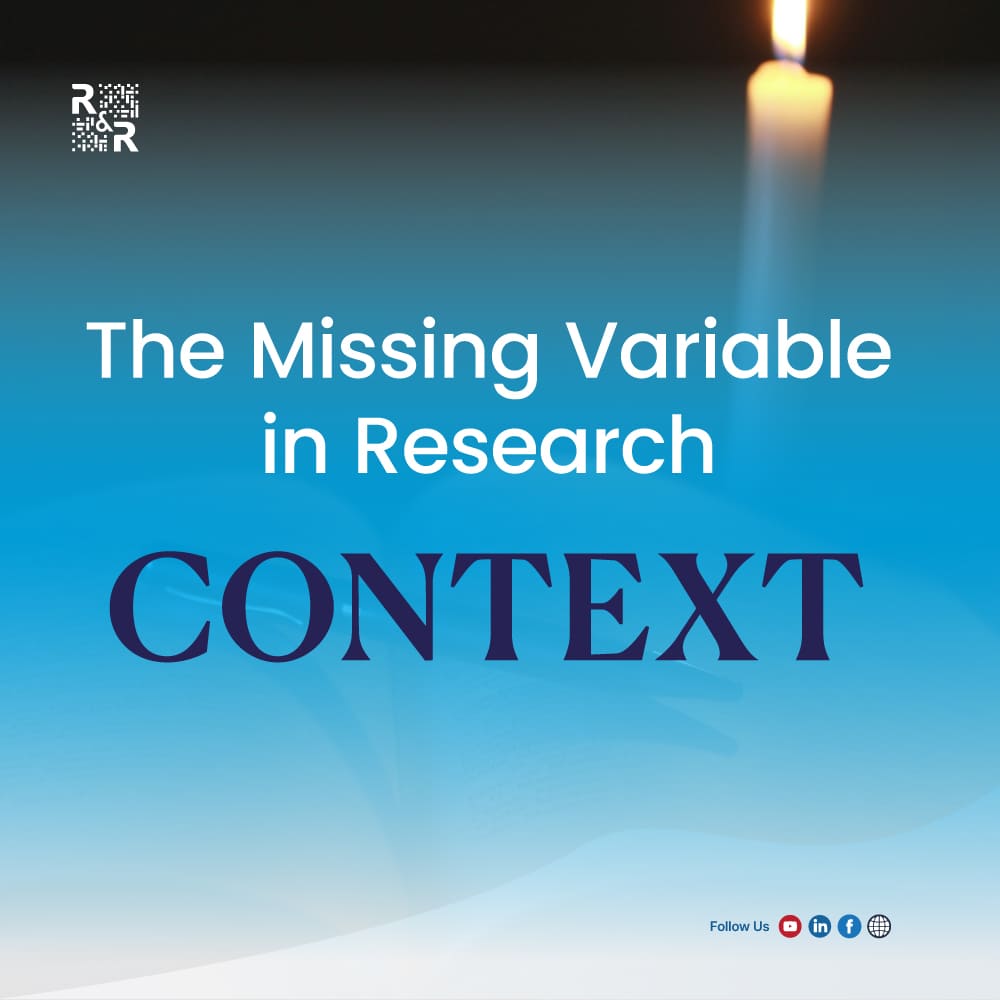Why Context Defines Research Quality
In academic and applied research, data is often treated as objective truth. Yet, every dataset is shaped by the context in which it is produced—culture, geography, politics, and time.
Ignoring context doesn’t just weaken results; it distorts reality. When researchers transfer models from the Global North to the Global South without adaptation, they risk producing findings that are statistically sound but contextually meaningless.
At Research & Report Consulting, we help research teams bridge this gap by integrating local context, stakeholder input, and embedded design into every phase of research.
“We localize your research framework to real-world complexity.”
Global North to South: The Context Gap Problem
Many research frameworks, models, and metrics are built in advanced economies—the Global North. These models assume certain economic stability, governance capacity, and institutional efficiency.
However, when these models are applied directly in the Global South, without adaptation, the results often fail. For example:
- Poverty metrics from OECD nations ignore the informal economy, which represents over 60% of employment in developing countries (ILO, 2023).
- Health studies designed for Western contexts underperform in tropical regions due to climate and infrastructure differences.
- Education models that assume digital access neglect countries where internet penetration remains below 40%.
These oversights lead to weak, irrelevant findings that can’t inform sustainable policy or local change.
Why Context Matters in Research Design
1. Context Gives Data Meaning
Data without context is like text without tone—it’s incomplete.
Cultural norms, local governance structures, and economic realities all influence how variables interact. Without accounting for them, results become misleading.
2. Context Prevents Policy Failure
Policies derived from context-free data rarely work on the ground. A World Bank evaluation (2022) found that 70% of development projects using “imported models” failed to achieve their intended impact due to poor contextual adaptation.
3. Context Strengthens Validity and Replicability
Contextual variables—like political stability, social capital, and access to infrastructure—improve both external validity (applicability) and replicability of research across regions.
The Solution: Contextual and Embedded Research Design
1. Embedded Design
An embedded design integrates local context from the start. It merges quantitative rigor with qualitative insight—community interviews, ethnographic observations, and local data audits.
This approach creates a more accurate, holistic picture of the phenomenon being studied.
2. Contextual Variables
Instead of relying solely on demographic or economic indicators, researchers should include contextual markers like:
- Access to informal markets
- Trust in local institutions
- Climate vulnerability
- Cultural perceptions of authority
Including these improves both interpretation and implementation of findings.
3. Stakeholder Co-Design
When local stakeholders co-create research frameworks, the resulting data reflects lived experience.
Co-design promotes authenticity, ownership, and impact, ensuring that policies and interventions actually work.
Policy Success vs Contextual Integration

(Source: World Bank, 2022)

This pyramid illustrates how context flows upward, influencing every layer of research design and application.
Real-World Implications: When Context Is Ignored
A 2023 OECD review showed that education reform projects designed in Western Europe failed in over 50% of Sub-Saharan pilot regions.
Why? Because the research ignored cultural learning styles, teacher incentives, and language diversity.
Similarly, public health interventions that overlooked religious practices or community hierarchies achieved lower vaccination rates despite large budgets.
The takeaway: contextual understanding isn’t optional—it’s foundational.
How Research & Report Consulting Adds Value
At Research & Report Consulting, we transform research frameworks into context-sensitive, localized systems. Our services include:
- Contextual mapping before study design
- Integration of local datasets and informal data sources
- Facilitation of stakeholder workshops
- Custom framework localization for Global South applications
Our mission:
“We localize your research framework to real-world complexity.”
Context Turns Data into Meaning
Ignoring context in research is like reading a story without its setting.
When we embed cultural, political, and environmental realities into analysis, data transforms into actionable insight.
Partner with Research & Report Consulting to ensure your research resonates with the people and environments it aims to serve.
💬 Question for Readers:
How do you integrate local context into your research or consulting projects? Share your approach below—let’s advance contextualized research together!
References
- International Labour Organization (ILO). (2023). Informal Economy in Developing Countries. https://www.ilo.org
- World Bank. (2022). Contextualizing Development Interventions. https://www.worldbank.org
- OECD. (2023). Policy Coherence for Sustainable Development. https://www.oecd.org
- UNDP. (2024). Localization in Research and Policy. https://www.undp.org
Want research service from Research & Report experts? Please contact us.

